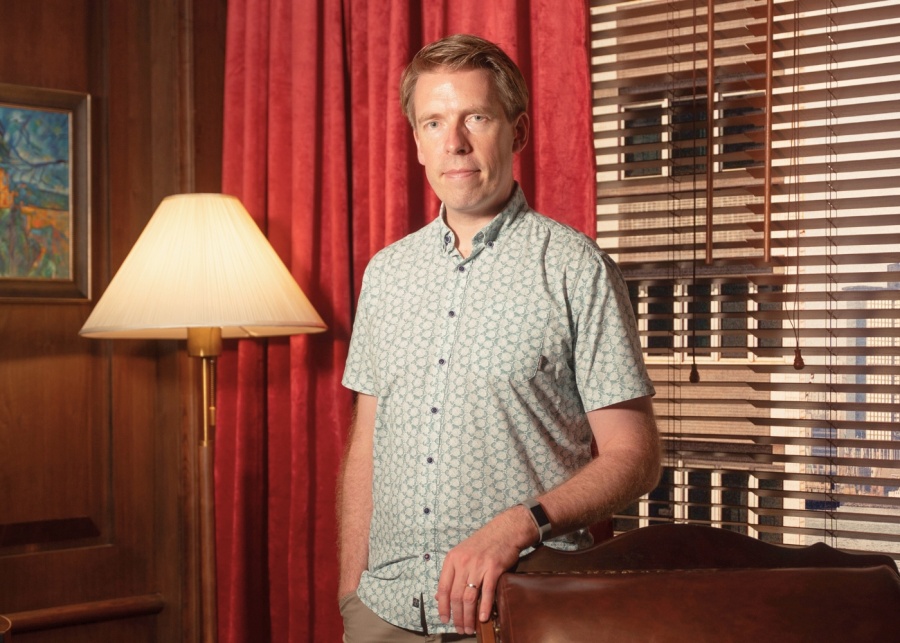
Join me and curator Kristof Van den Troost in uncovering the world of deception, emotional turmoil, and silent rewards.
Tai Kwun’s latest thematic exhibition, Undercover Underworld, delves deep into the lives of spies and undercover agents as represented in iconic Hong Kong movies. The exhibition showcases key scenes from blockbusters such as Infernal Affairs, Man on the Brink, and A Better Tomorrow through detailed, true-to-life film sets. Contrasting the bombastic and alluring nature of undercover work in the exhibition is a more subdued – and at times, bleak – reality that’s more akin to the experiences of an undercover agent working in the period that these action movies are set. I speak with Kristof Van den Troost, co-curator of the exhibition, about his curation process, the discrepancy between life and cinema, and thrilling stories uncovered during his research.
Uncovering the world of undercover work with Kristof Van den Troost
Initiation: Induction into the world of spies
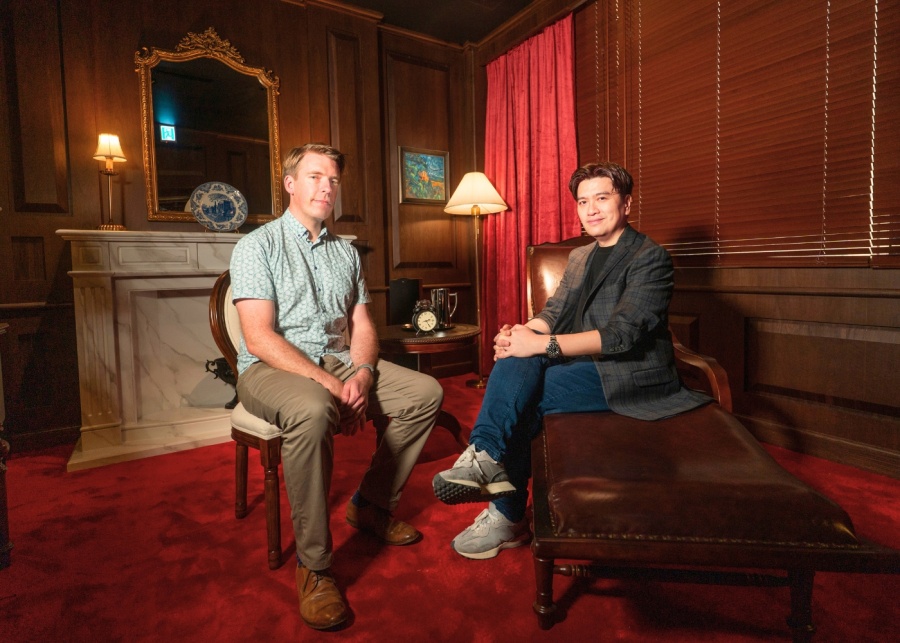
Despite Undercover Underworld’s clear focus, Van den Troost and the curatorial team didn’t plan on theming the exhibition around Hong Kong undercover movies. “The original start of this exhibition came from Tai Kwun. They had contacted me and the co-curator Sunny to do an exhibition related to crime films and reality.”
“There was an interest in looking at the appearance of Tai Kwun itself, because of its history as a police station [and] a prison law court in Hong Kong films. But we moved away from that somewhat, because we didn’t find a lot of well-known films that we could feature. Instead, we started to think of another approach, and so we ended up with undercover films.”
Cinematic parallels: The spy and the undercover
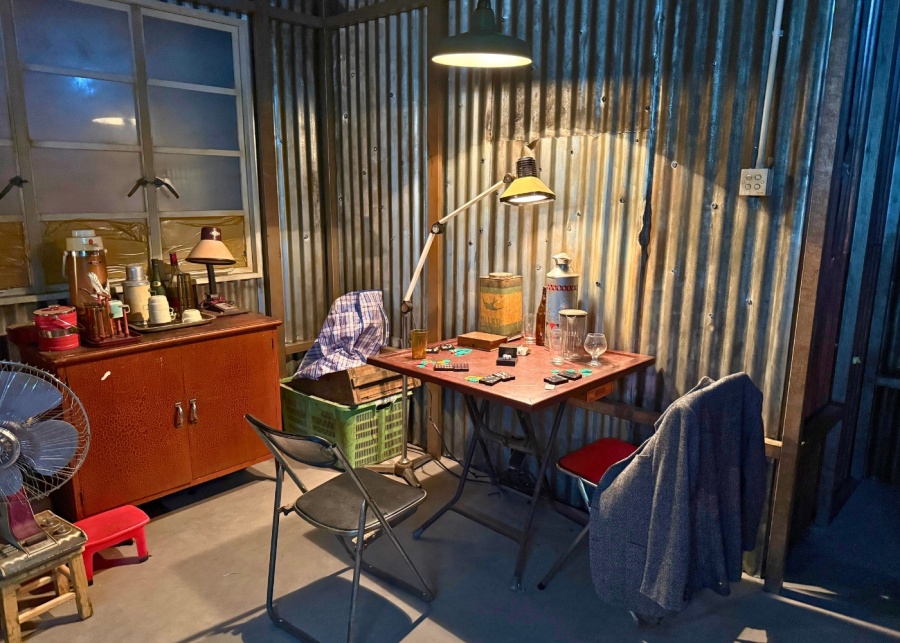
In the world of cinema, the difference between a spy and an undercover agent may be thin, but Van den Troost highlights the important difference between the two roles in Hong Kong cinema and, by extension, society in the 1960s. Spy films were products of the 1940s during WWII and the Cold War, which were popularised by James Bond movies and local adaptations of these spy classics.
By the 1960s, the archetypal characters you’d see in a spy movie were diverse and varied. “Some of them were undercover police officers. Others were spies, although this was less common because it’s politically quite sensitive in Hong Kong at that time. So there are connections between them. But then what you see from the late 70s onwards, and especially with Man on the Brink, the film that opens the exhibition, the focus is very specifically on undercover work, with agents going undercover in gangs.”
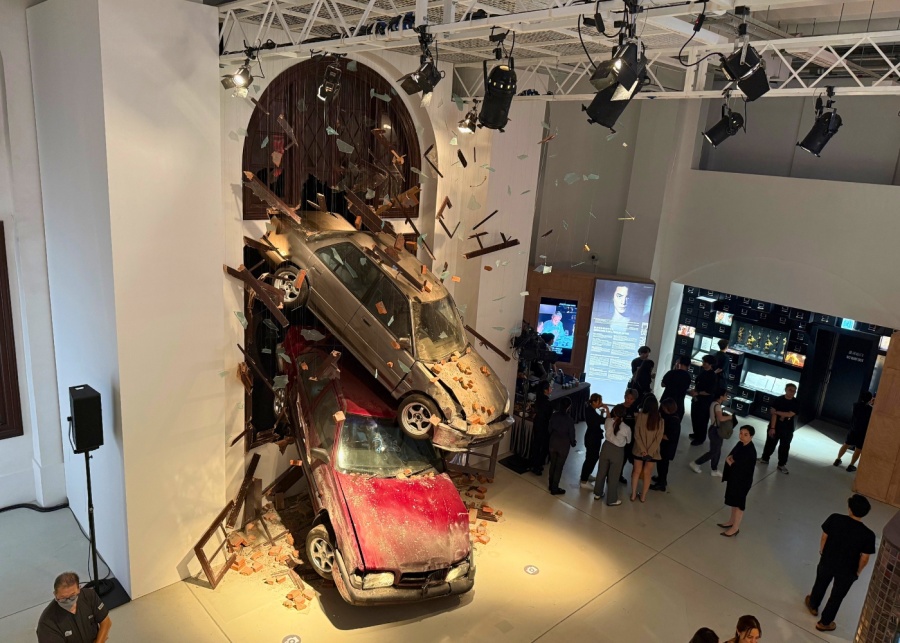
Gradually, local cinema evolved out of a focus on spy work to focus on “gang culture and the conflicts that can arise from that. Van den Troost muses, “It’s interesting that undercovers do all kinds of tasks in real life. But in Hong Kong films, the focus has really been on crime. So looking at organised crime, the triads – that’s been sort of the traditional focus of the Hong Kong undercover film.”
Lifting the veil of drama: Mundane experiences undercover
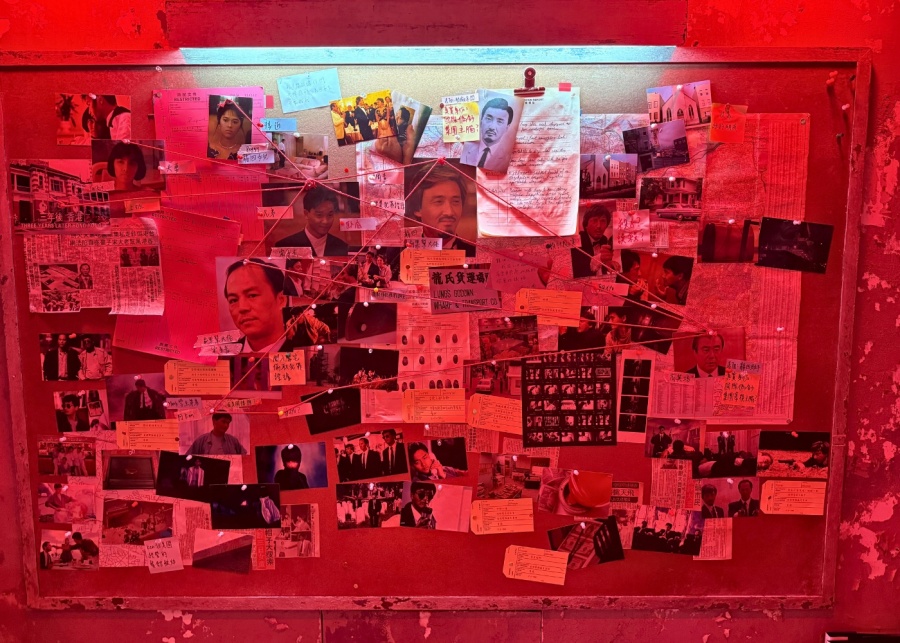
“This goes back to the original idea of the exhibition,” says Van den Troost. “We were interested in this connection between real crime and crime as it appears in Hong Kong movies and the function of Tai Kwun in that, This is still present to some extent. As it turned out, we focused on the undercover films, but if you look carefully at the walls, especially in the Mind Map Room, you will see some pictures that feature Tai Kwun in the background.”
“The other example of this connection with the original idea is to look at real undercovers and see what they have to say about undercover work. We were able to do that to some extent, it was beyond my expectation that we would be able to find undercovers, but we were very lucky to get help to locate and to interview for this exhibition. I think their perspectives are very valuable and can add to our understanding of the films and how they are different from the reality of undercover work.”
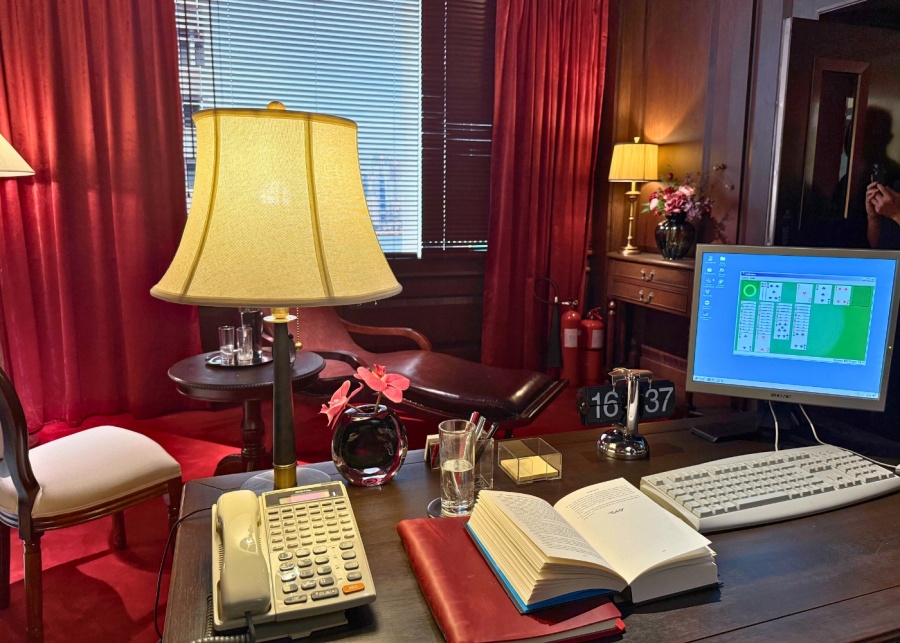
“You have this sort of idea in a lot of Hong Kong undercover films of the agent being undercover for very long. I think it’s necessary for the drama, because it creates tensions, divided loyalties, and questions about identity. But what we learned was that, in reality, it is very, very rare for someone to be undercover for such a long period of time. Most missions are very short. It could be a few days, weeks, maybe months, but very rarely would it be a year.”
Film VS reality: Life of an undercover agent
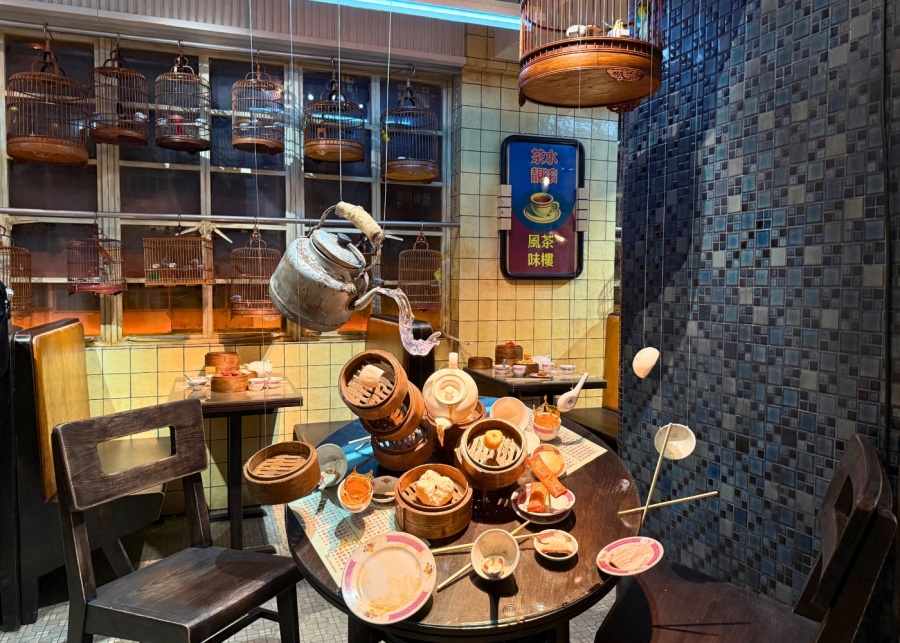
While undercover films like Infernal Affairs portray the undercover agent as leading a thrilling and bombastic life, in reality it is not unlike yours or mine. “We talked to two undercovers. The one who was active in Hong Kong in the 1970s, his stories seemed more similar to the films of that time. If you’ve seen Man on the Brink, it seems like the same world that he lived in, and the story sounds very familiar.”
“But we also talked to the trainer of undercover agents who was active somewhat more recently into the 2000s. He’s actually still doing freelance undercover work, and so his perspective on that was very interesting. He works mostly in the UK context, but he did train Hong Kong undercover agents as well. The stories from the 70s and 80s to more recent times were more surprising, in a way that they differed from the stories you see in the movies.”
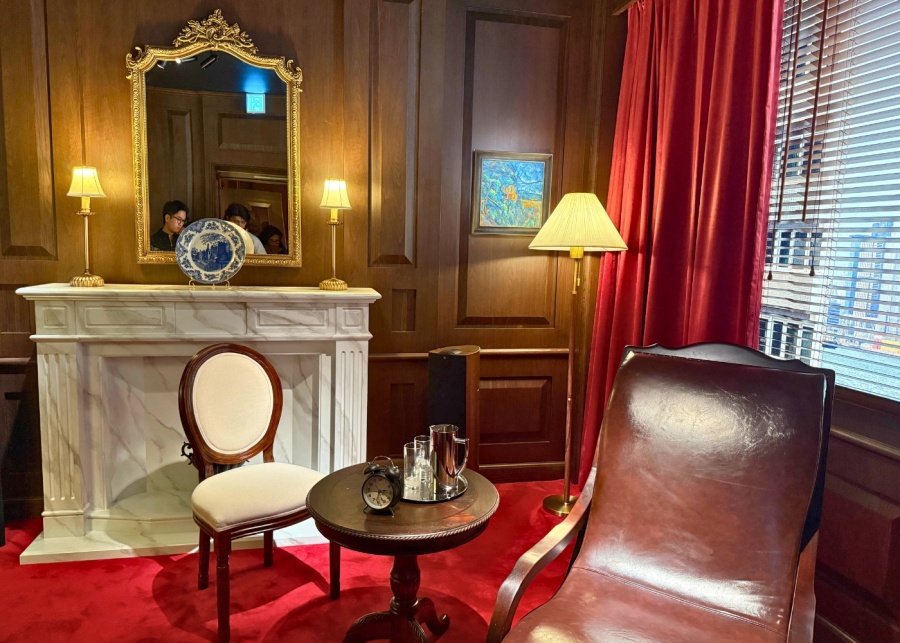
“I think there have been changes in undercover work that are not always captured very well in the films. One aspect is the psychological counseling that the agents receive. This wasn’t really existent in the 1970s and 80s, but our British undercover agent told us that this is now required practice. When they’re undercover, they have to meet a psychologist very regularly just to make sure that they stay grounded.
And the only film in Hong Kong that really highlighted this is Infernal Affairs. But even there, you can say it’s not taken completely seriously. It hints at its existence, but it’s not really in the context of undercover work.”
The grey zone: The other side of crime

While Van den Troost has heard of various close calls and stories of potential identity slip ups from his interviewees, what stood out was the moral and loyalty dilemma that agents often face in the films and in real life. “The Hong Kong undercover talks about his relationship with a crime boss. In the 70s he clearly had some feelings of responsibility towards his gang leader, whom he betrayed and had to put in jail. But he did feel guilty about it, and later, after the man left jail, he helped him financially and accompanied him as he was dying of cancer later on. So, there you have quite a story, more from the movies, I guess.”
“The British undercover’s attitude towards this loyalty struggle: the duty of the police officer versus the loyalty towards the gang brothers. This is something he didn’t seem too bothered by. He said some of these people that they have to get close to, they’re nice people, they can be very fun people to hang out with in the pub. But for him, it was never really difficult to make this distinction. That these are bad guys and it is his job to catch them. So he didn’t seem to be very bothered by the ethical dilemma that is central in many Hong Kong films.”
Upcoming live discussions
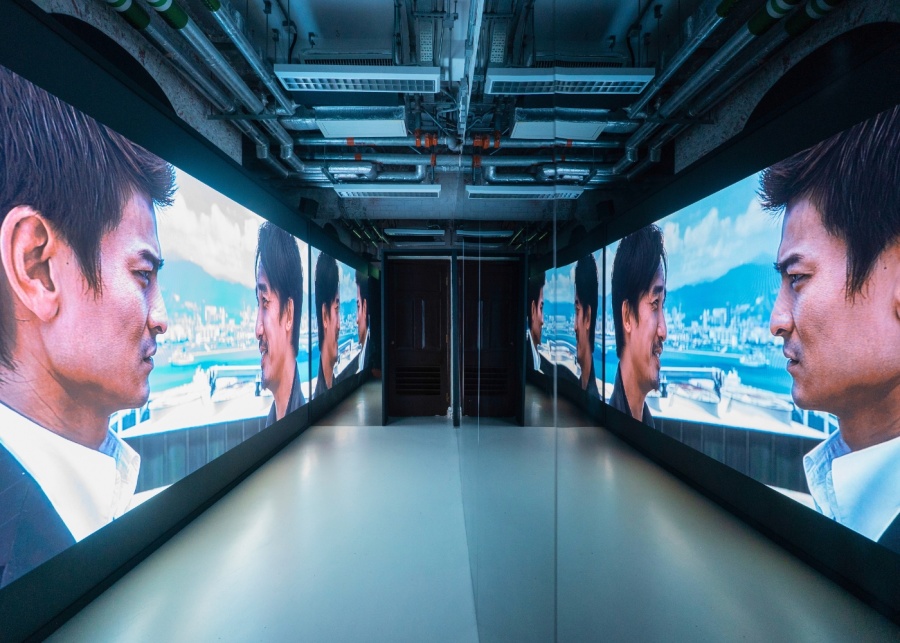
If you’re interested in hearing more about real life undercover policing, make your way to Tai Kwun on 21 and 27 September for two enlightening discussions!
Tai Kwun Conversations: Undercover Life/ Undercover Film
When: 7:30 – 9pm, 21 September 2025
How much: Free to enter
Address: JC Cube, Tai Kwun, 10 Hollywood Road, Central, Hong Kong
Tai Kwun Conversations: Undercover in Hong Kong Cinema – Silent Masks, Thunderous Reveals
When: 3 – 4:30pm, 27 September 2025
How much: Free to enter
Address: JC Cube, Tai Kwun, 10 Hollywood Road, Central, Hong Kong
Undercover Underworld
When: Mon – Thu, 11am – 7pm; Fri – Sun and public holidays, 11am – 8pm, until 5 October 2025
How much: Regular ticket from $25; concession ticket from $15
Address: Duplex Studio, Barrack Block 01, Tai Kwun, 10 Hollywood Road, Central, Hong Kong
Learn more about the exhibition Tai Kwun website
What cultural gem should I uncover next? DM @honeycombershk on Instagram or drop me an email at celia.lee@thehoneycombers.com.
Frequently Asked Questions
What are the main films and themes featured in the "Undercover Underworld" exhibition?
The exhibition focuses on spies and undercover agents as portrayed in iconic Hong Kong movies. It features detailed film sets from blockbusters like "Infernal Affairs," "Man on the Brink," and "A Better Tomorrow." The core theme is the contrast between the thrilling, bombastic nature of undercover work in cinema and the more mundane reality.
What is the key discrepancy between life and cinema for undercover agents, as revealed in the exhibition?
The exhibition reveals that, unlike the dramatic, long-term missions often seen in movies, real-life undercover work is very rarely a prolonged commitment and is typically very short, lasting only a few days or weeks. Additionally, while films highlight a moral dilemma, some real-life agents are not as bothered by the ethical struggles of their work.
Where is the exhibition located, and what are the opening hours and ticket prices?
The "Undercover Underworld" exhibition is located at the Duplex Studio, Barrack Block 01, Tai Kwun, at 10 Hollywood Road, Central, Hong Kong. It is open Monday to Thursday from 11am to 7pm, and Friday to Sunday and public holidays from 11am to 8pm. The exhibition runs until October 5, 2025. Tickets are priced from $25 for regular admission and from $15 for concessions.

